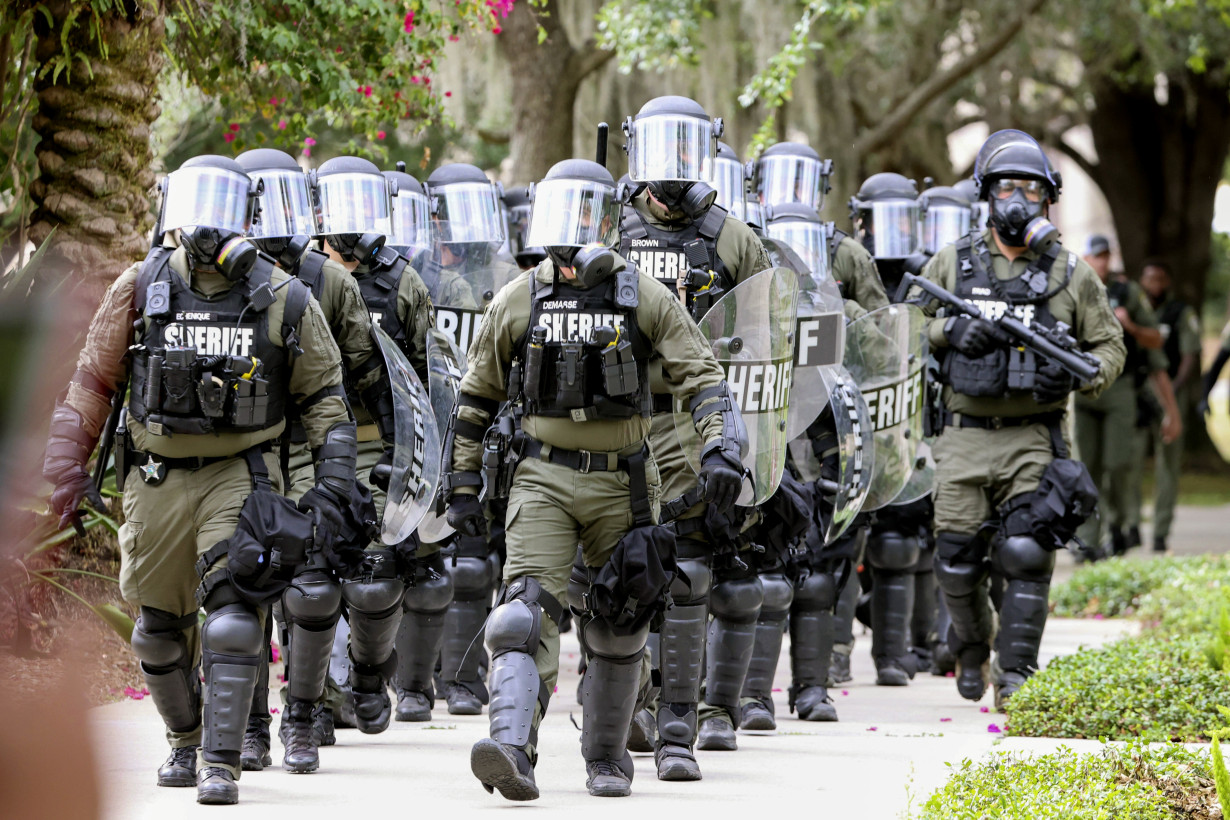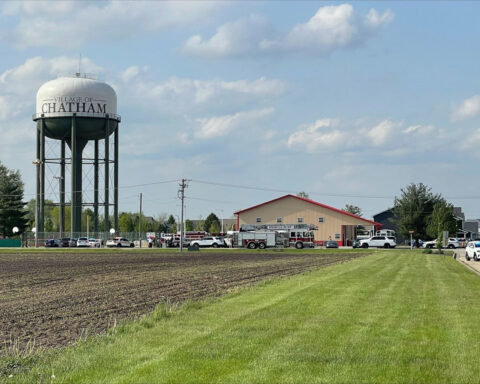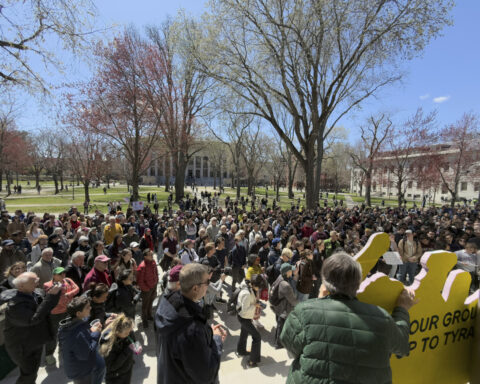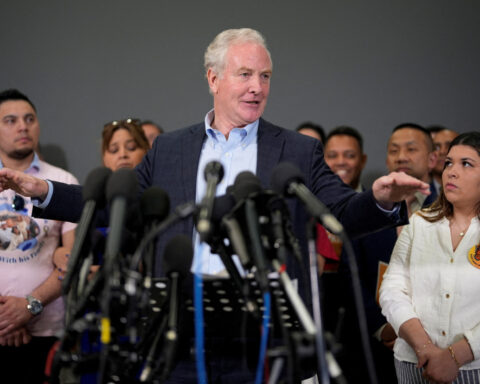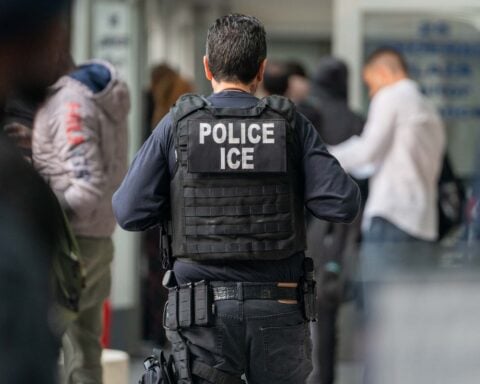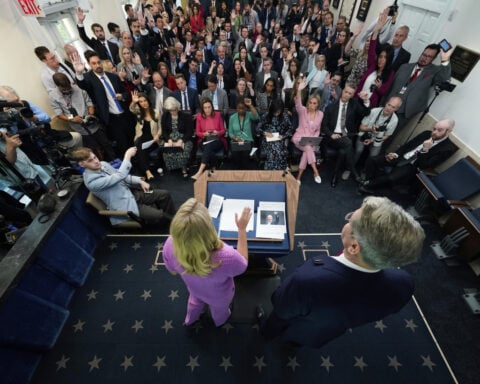TALLAHASSEE, Fla. (AP) — The police departments of at least three public universities in Florida are seeking agreements with the federal government to carry out immigration enforcement on campus.
It's a significant shift in policy for schools that had previously been considered “sensitive locations” to be insulated from such law enforcement activities, under a federal policy the Trump administration rescinded.
The change comes as federal officials are revoking the visas of international students and using what critics say are new tactics with vague justifications to push some students out of the country.
Florida Atlantic University in Boca Raton, the University of Florida in Gainesville and the University of South Florida in Tampa are all seeking to deputize their campus police for immigration enforcement, representatives for the schools confirmed to The Associated Press.
Florida Gov. Ron DeSantis has prioritized support for President Donald Trump's mass deportation agenda, signing new laws requiring local and state agencies to use their “best efforts” to support federal immigration enforcement.
Joshua Glanzer, a spokesperson for FAU, said “all state schools” in Florida are expected to pursue the expanded immigration enforcement authority.
“We are simply following guidance from the Governor’s Feb. 19 directive to state law enforcement agencies, of which FAUPD and other state university police departments are included,” Glanzer said in a statement.
The schools are not yet listed in an online log of agencies participating in what's known as the 287(g) program, which allows U.S. Immigration and Customs Enforcement to train selected law enforcement officers and deputize them to help enforce immigration laws.
If approved, the university police departments could be among the first in the country to be granted such authority.
Under a 287(g) task force model, such as the agreement being pursued by the University of Florida, participating officers would have the authority to interrogate “any alien or person believed to be an alien” about their right to remain in the country, as well as the power to make arrests without a warrant in some cases.
Jennica Charles, who's studying political science at FAU, said the news was “shocking.” The daughter of Haitian immigrants said she found a welcoming community at the school in South Florida, a region that has long been a destination for first and second generation Americans. In recent years, FAU has billed itself as having the “most racially and culturally diverse student body” in Florida's public university system.
"Who’s to say that someone doesn’t stop me and say, ‘oh I look like I don’t belong here?’" Charles said. “I definitely think it’s going to make people feel more unsafe, whether you are someone that has immigrant status or not.”
The Presidents' Alliance on Higher Education and Immigration is among the organizations giving guidance to school administrators as they navigate this new level of government scrutiny of American college campuses.
Miriam Feldblum, the group's CEO, says the increased enforcement could drive students to avoid school resources like counseling or pull away from campus life, out of fear that any interaction could lead to attention.
“College campuses are supposed to be safe places for learning, for support, for growth,” Feldblum said. “Turning them into sites of immigration enforcement undermines our fundamental ability to foster secure, inclusive, serendipitous, academic environments.”
___ Kate Payne is a corps member for The Associated Press/Report for America Statehouse News Initiative. Report for America is a nonprofit national service program that places journalists in local newsrooms to report on undercovered issues.

 Trump has begun another trade war. Here's a timeline of how we got here
Trump has begun another trade war. Here's a timeline of how we got here
 Canada's leader laments lost friendship with US in town that sheltered stranded Americans after 9/11
Canada's leader laments lost friendship with US in town that sheltered stranded Americans after 9/11
 Chinese EV giant BYD's fourth-quarter profit leaps 73%
Chinese EV giant BYD's fourth-quarter profit leaps 73%
 You're an American in another land? Prepare to talk about the why and how of Trump 2.0
You're an American in another land? Prepare to talk about the why and how of Trump 2.0
 Chalk talk: Star power, top teams and No. 5 seeds headline the women's March Madness Sweet 16
Chalk talk: Star power, top teams and No. 5 seeds headline the women's March Madness Sweet 16
 Purdue returns to Sweet 16 with 76-62 win over McNeese in March Madness
Purdue returns to Sweet 16 with 76-62 win over McNeese in March Madness
